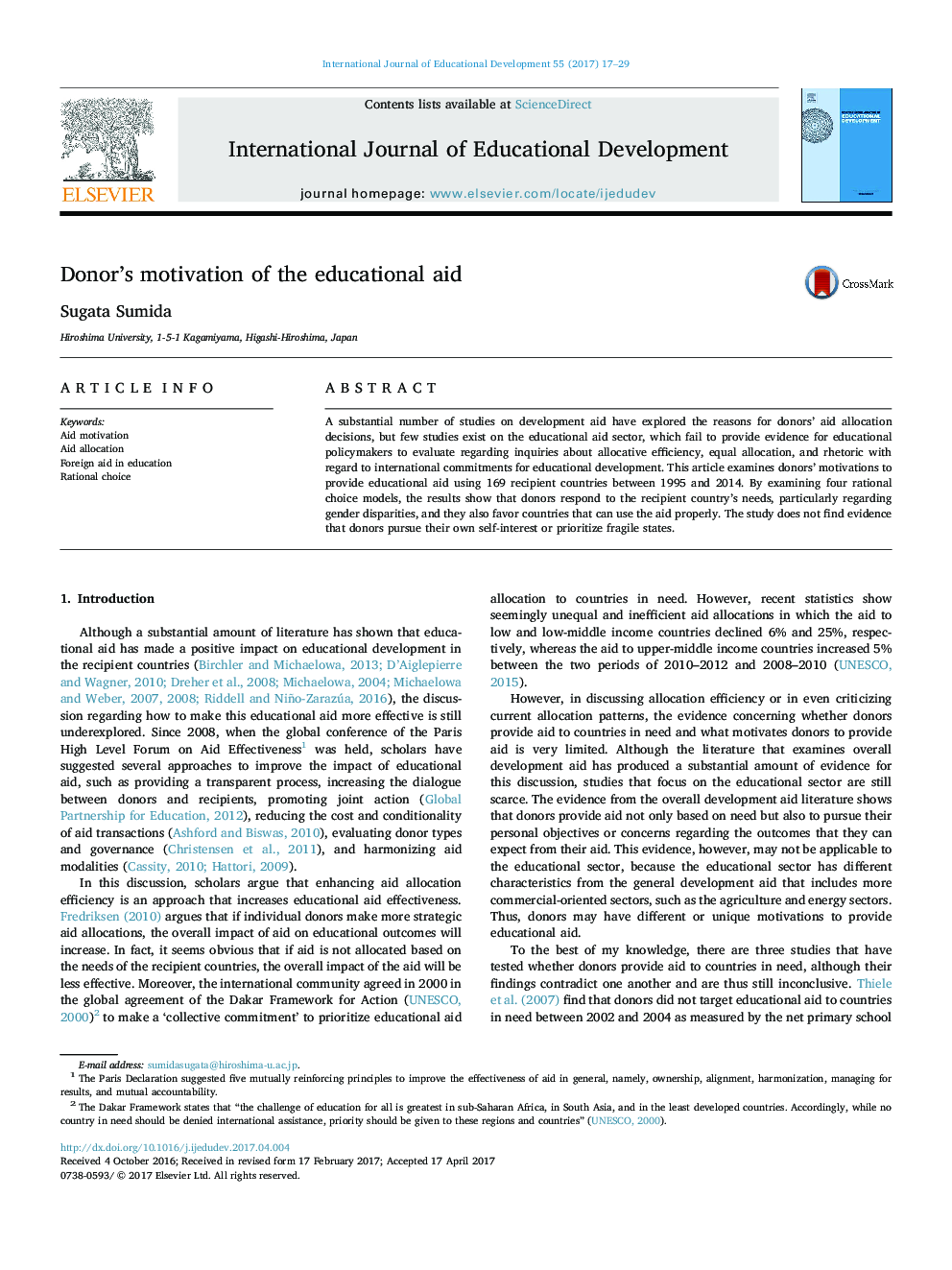| Article ID | Journal | Published Year | Pages | File Type |
|---|---|---|---|---|
| 4938478 | International Journal of Educational Development | 2017 | 13 Pages |
Abstract
A substantial number of studies on development aid have explored the reasons for donors' aid allocation decisions, but few studies exist on the educational aid sector, which fail to provide evidence for educational policymakers to evaluate regarding inquiries about allocative efficiency, equal allocation, and rhetoric with regard to international commitments for educational development. This article examines donors' motivations to provide educational aid using 169 recipient countries between 1995 and 2014. By examining four rational choice models, the results show that donors respond to the recipient country's needs, particularly regarding gender disparities, and they also favor countries that can use the aid properly. The study does not find evidence that donors pursue their own self-interest or prioritize fragile states.
Keywords
Related Topics
Social Sciences and Humanities
Social Sciences
Development
Authors
Sugata Sumida,
